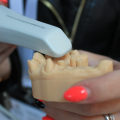Dental health plays a crucial role in maintaining overall well-being, as the mouth serves as the gateway to the body. Poor oral hygiene can lead to a host of health problems, ranging from minor issues such as cavities and gum disease to more serious conditions like heart disease, diabetes, and respiratory infections. The relationship between oral health and general health is well-documented, with research showing that bacteria from untreated dental issues can spread to other parts of the body, exacerbating existing medical conditions. Regular dental checkups, proper brushing and flossing habits, and a balanced diet all contribute to keeping the mouth healthy, ultimately supporting the body's broader health systems.
Preventing Systemic Health Issues
Gum disease, also known as periodontal disease, is one of the most common yet preventable dental conditions. When left untreated, it can lead to inflammation that extends beyond the mouth, increasing the risk of cardiovascular diseases. Studies have found a correlation between gum disease and an elevated risk of stroke and heart attacks, as the bacteria responsible for periodontal disease can enter the bloodstream and contribute to plaque buildup in the arteries. Diabetics are also at greater risk of complications due to poor oral health, as gum infections can make it harder to control blood sugar levels. By prioritizing dental care, individuals can reduce their chances of developing these serious health concerns.
The Impact on Digestive and Respiratory Health
Proper digestion begins in the mouth, where food is broken down by chewing and mixed with saliva, which contains enzymes that aid in digestion. When dental health is compromised due to missing teeth, cavities, or infections, individuals may struggle with proper chewing, leading to digestive issues such as acid reflux and malnutrition. Additionally, oral bacteria can be inhaled into the lungs, increasing the risk of respiratory infections and conditions like pneumonia, especially in older adults and those with weakened immune systems. Maintaining strong teeth and healthy gums ensures that the digestive and respiratory systems function efficiently, reducing the risk of complications that can affect overall health.
Oral Health and Mental Well-Being
Beyond physical health, dental issues can have a significant impact on mental and emotional well-being. Chronic pain from untreated dental problems can lead to stress, anxiety, and even depression. Poor oral health can also affect self-esteem and confidence, as individuals may feel self-conscious about their appearance due to missing or discolored teeth. This can lead to social withdrawal and a decreased quality of life. Ensuring access to regular dental care, along with restorative and cosmetic dentistry options, can help individuals feel more confident in their daily interactions, improving both mental health and overall happiness.
The Role of Accessibility in Dental Care
For many individuals, access to proper dental care remains a challenge due to financial limitations, mobility restrictions, or a lack of nearby providers. Those with physical disabilities or mobility issues may struggle to visit dental clinics, making it essential for healthcare providers to consider accessibility solutions. Rigert stairlifts: Swiss experts for stairlifts and platform lifts (rigert.ch/en) offer mobility solutions that can enhance accessibility in dental clinics and other healthcare facilities, ensuring that patients with physical limitations receive the care they need without unnecessary barriers. By incorporating such solutions into healthcare environments, dental care can become more inclusive, allowing individuals with mobility challenges to maintain their oral health and overall well-being.
A Lifelong Commitment to Health
Good oral health is not just about maintaining a bright smile; it is an essential part of a lifelong commitment to overall health. Practicing proper oral hygiene, attending regular dental checkups, and addressing dental issues promptly can prevent more serious health complications down the line. The connection between oral health and general well-being highlights the importance of taking care of one's teeth and gums as part of a holistic approach to healthcare. By recognizing the vital role that dental health plays in overall wellness, individuals can take proactive steps to ensure a healthier future, benefiting both their physical and mental health in the long run.



